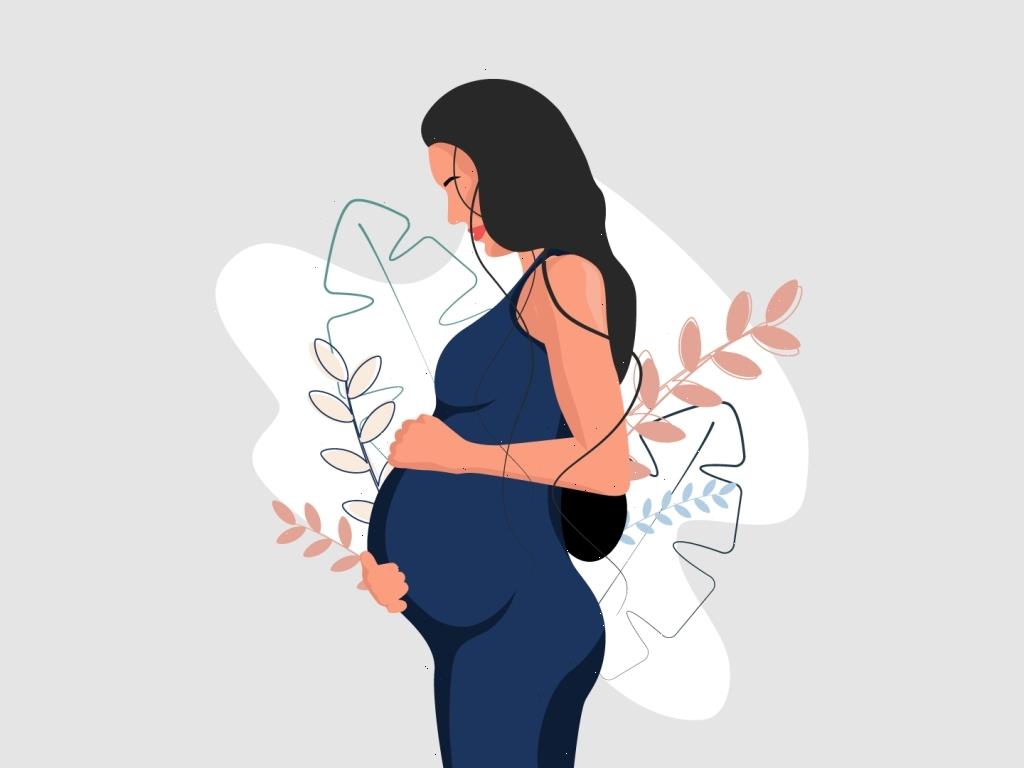It takes me a minute and a half to walk from the doctor’s communal office to the staff break room. Now that I am nine months pregnant, I hear a lot within those 90 seconds:
“About to pop, doc!”
“Should I get you a walker, doc?”
“You and that waddle!”
Smiling politely in response, I make my undignified way down the hall. Unfortunately, I never thought I looked undignified until I heard these comments. I thought I still looked pretty fit, all things considered. If these descriptions are attempts to express empathy, they are not working. If instead they are intended to tell me that I am different now, then sure, they are effective — but I never asked.
Maybe my change in appearance has been startling. I am just under five feet tall and typically under a hundred pounds. Until recently, I inadvertently covered my pregnancy in the same outfit I always wear to work in an emergency room: scrubs and a hoodie. But apparently my pregnancy is now obvious, and everyone needs to make unsolicited comments on it.
“I didn’t realize you were expecting,” one male coworker said as I was heating up my oatmeal last week. “You have been less friendly lately. Your energy changed. But you’ve got a baby on the way! Now it makes sense.”
What was the point of this conversation? Did he want to tell me both that I had let him down and that he was letting me off the hook? He withheld this opinion of my sociability for months, but now he felt comfortable saying it out loud. Why did pregnancy make that difference?
This is not limited to work. I was only in my second trimester when I saw family and friends over the holidays. “Wow, Ruchi, if I didn’t know you had a baby in there, I would think you had really let yourself go!” a friend’s parent said.
“Yeah, I would think you started eating meat and went overboard with the hamburgers,” someone else said, chuckling.
I am expected to smile back and take these comments in good faith. ‘Your body has changed tremendously, but it’s okay! And I want you to know that I think it’s okay!’ is the translation I hear in my head. The statements people make are also predictably gendered: women want to compare my pregnancy to theirs. “How much weight have you gained already? I barely gained any weight with mine!” is a common one, whereas men want to comment on my change in size.
Somehow worse than these are the judgements about how I am conducting myself. People ask me why I am still working (because I have to pay rent) or what I am eating (enough). Strangers at the grocery store will guess the sex (predictably, they are accurate about 50% of the time) or mention how I am “carrying”. One scandalized woman let me know in a checkout line that I had “no right to be buying wine in my condition.” I considered reassuring her that I wasn’t buying it for myself, but decided I did not have to respond at all. Another man on the bus asked me if the baby was his, then laughed.
I did not expect pregnancy to feel this dehumanizing. It feels as though I have stopped being an individual and am now viewed as a function. Comments about my weight or actions that polite society would previously have considered rude are now fair game. They are not reflections on my character, after all — they are reflections on my function! Does this fridge get cold enough? Can this phone hold a charge? Can this woman bear a child, and if so, how well?
Yet it has not all been bad. I appreciate kindness more now. Statements of sympathy and reassurance are always welcome. People who tell me that I’m doing great, that they are impressed that I’m still working, or people who tell me that I’ll be a great mother — I did not ask for these either, but they make me happy. Action is better still; I am unspeakably grateful for co-workers who shoulder more on days where I cannot, and for the ones who rush to the front of a code without me saying a word.
But action is rare. I notice how many people make unsolicited comments (many) and how many people give up their seats on the subway (one). It makes me wish I had not hidden the difficult aspects of pregnancy. People don’t seem to recognize that their comments make me uncomfortable; I wish I had remained as willfully oblivious to their discomfort. I wish I had not gone down the hall to use the private bathroom during morning sickness. I wish I hadn’t forced myself to work on days where I was too tired to stand. I wish I hadn’t gritted my teeth and smiled through new, confusing pains. I wish I hadn’t taxed myself to make things easier for others. Because if people don’t see how hard pregnancy is, maybe they cannot empathize.
But until society recognizes the unique challenges of pregnancy, here is some advice. It is the same advice for any situation, except it also applies in pregnancy:
Did the pregnant woman ask for your opinion? If the answer is no, you (and she) may be better off with you keeping those unsolicited comments to yourself.
Source: Read Full Article
